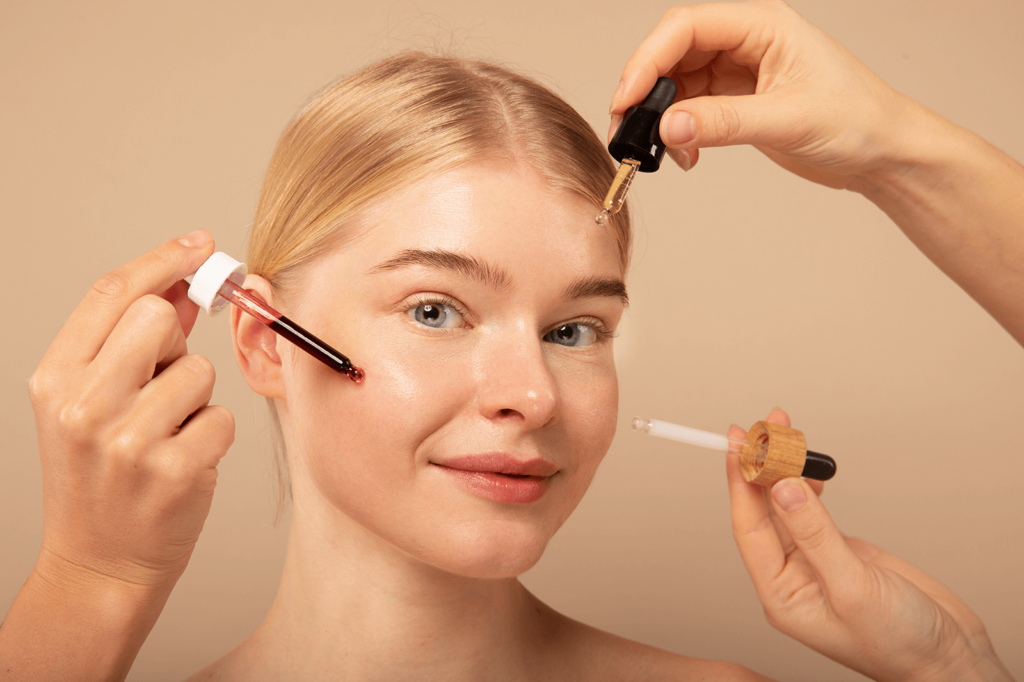Having sensitive skin can often be a challenge when it comes to skincare. The delicate nature of sensitive skin requires special attention and care to avoid irritation, redness, and other unpleasant reactions. In this comprehensive guide, we will explore the world of skincare for sensitive skin, providing expert tips, product recommendations, and answers to frequently asked questions. Whether you’re a skincare enthusiast or someone struggling to find the right products for your sensitive skin, this article is here to help you achieve a healthy and radiant complexion.
Understanding Sensitive Skin
What is sensitive skin?
Sensitive skin refers to a skin type that is prone to adverse reactions and irritation due to external or internal factors. People with sensitive skin often experience redness, dryness, itchiness, and a general discomfort when exposed to certain skincare products or environmental triggers. It is important to note that sensitive skin can vary in severity and may require specific care to maintain its health and balance.
Common triggers for sensitive skin
Sensitive skin can be triggered by various factors, including:
- Harsh chemicals and ingredients in skincare products;
- Extreme temperatures and weather conditions;
- Allergens such as pollen or pet dander;
- Irritants like certain fabrics or rough textures;
- Stress and hormonal changes.
Identifying these triggers and avoiding them can help manage sensitive skin and prevent unwanted reactions.
Identifying sensitive skin types
There are different types of sensitive skin, and understanding your skin type is essential for tailoring a skincare routine that works for you. The most common sensitive skin types include:
- Dry and Sensitive Skin: This skin type often feels tight and experiences flakiness or rough patches. It may be prone to redness and irritation.
- Oily and Sensitive Skin: This skin type is characterized by excess sebum production, leading to a shiny or greasy appearance. It may also be prone to breakouts and sensitivity.
- Combination and Sensitive Skin: This skin type exhibits characteristics of both dry and oily skin. It can be challenging to balance the needs of different areas, especially when sensitivity is also a factor.
- Acne-Prone and Sensitive Skin: This skin type is susceptible to acne breakouts, along with sensitivity and potential inflammation. It requires gentle yet effective acne treatments.
Understanding your specific skin type allows you to make informed choices when it comes to skincare products and routines, promoting optimal skin health.
Essential Skincare Tips for Sensitive Skin
Taking care of sensitive skin requires a gentle and nurturing approach. Here are some essential skincare tips to help you maintain a healthy and radiant complexion:
Gentle cleansing techniques for sensitive skin
When cleansing sensitive skin, it is crucial to choose mild, non-irritating cleansers that do not strip away natural oils. Consider the following tips:
- Opt for fragrance-free and soap-free cleansers.
- Use lukewarm water instead of hot water, which can cause dryness.
- Gently massage the cleanser onto your skin using circular motions.
- Rinse thoroughly to remove any residue.
- Pat your skin dry with a soft towel instead of rubbing.
Moisturizing strategies for maintaining skin hydration
Proper hydration is essential for sensitive skin. Follow these moisturizing strategies:
- Choose moisturizers specifically formulated for sensitive skin.
- Look for ingredients like hyaluronic acid and ceramides, which help retain moisture.
- Apply moisturizer to slightly damp skin to lock in hydration.
- Use gentle tapping motions to ensure even distribution.
- Repeat moisturization throughout the day if needed, especially in dry environments.
The importance of sunscreen for sensitive skin
Protecting sensitive skin from harmful UV rays is crucial in preventing damage and reducing sensitivity. Here’s what you need to know:
- Select a broad-spectrum sunscreen with SPF 30 or higher.
- Look for physical sunscreens containing zinc oxide or titanium dioxide.
- Apply sunscreen generously at least 15 minutes before sun exposure.
- Reapply every two hours or more frequently if sweating or swimming.
- Consider wearing protective clothing and seeking shade during peak sun hours.
Avoiding harsh exfoliants and abrasive treatments
While exfoliation is beneficial for most skin types, it requires caution for sensitive skin. Follow these guidelines:
- Choose gentle exfoliation methods like chemical exfoliants with AHAs or BHAs.
- Avoid physical exfoliants with rough particles that can cause micro-tears.
- Limit exfoliation to once or twice a week to avoid overstimulating the skin.
- Be mindful of any signs of irritation and adjust your exfoliation frequency accordingly.
- Consider seeking professional advice for customized exfoliation options.
By implementing these essential skincare tips, you can establish a solid foundation for caring for your sensitive skin.
Choosing the Right Skincare Products for Sensitive Skin
When it comes to selecting skincare products for sensitive skin, it’s important to choose those specifically formulated to minimize irritation and provide gentle care. Consider the following factors:
Fragrance-free and hypoallergenic options
Fragrances can often be a common trigger for sensitive skin reactions. Opting for fragrance-free products can reduce the risk of irritation. Additionally, choosing hypoallergenic products formulated with minimal allergens can help maintain skin health.
Patch testing for compatibility with sensitive skin
Before fully incorporating a new skincare product into your routine, it’s advisable to perform a patch test to ensure compatibility. Follow these steps:
- Choose a small, inconspicuous area of your skin, such as the inside of your forearm or behind your ear.
- Apply a small amount of the product and wait for 24 to 48 hours.
- Monitor the area for any signs of redness, itching, or irritation.
- If no adverse reactions occur, the product is likely safe for use on your sensitive skin.
Patch testing is a valuable precautionary measure to prevent potential adverse reactions.
Seeking advice from dermatologists or skincare experts
If you’re unsure about the most suitable skincare products for your sensitive skin, seeking advice from dermatologists or skincare experts can provide personalized recommendations. Their expertise can guide you towards products and routines tailored to your unique needs.
Choosing the right skincare products for your sensitive skin is crucial in maintaining its health and preventing irritation. Be diligent in reading product labels and conducting research to make informed choices.

Daily Skincare Routine for Sensitive Skin
Establishing a daily skincare routine specifically designed for sensitive skin can help maintain its balance and minimize reactions. Here’s a suggested morning and evening routine:
Morning skincare routine for sensitive skin
- Cleanser: Start your day by gently cleansing your skin with a mild, fragrance-free cleanser suited for sensitive skin.
- Toner: Apply a hydrating and alcohol-free toner to replenish moisture and prepare your skin for subsequent steps.
- Serum: Choose a lightweight and soothing serum formulated for sensitive skin. Apply it to target specific concerns such as redness or uneven skin tone.
- Moisturizer: Hydrate your skin with a moisturizer specifically designed for sensitive skin. Look for non-comedogenic options to avoid clogging pores.
- Sunscreen: Protect your skin from UV damage by applying a broad-spectrum sunscreen with SPF 30 or higher. Reapply as needed throughout the day.
Evening skincare routine for sensitive skin
- Makeup removal: Begin by thoroughly removing your makeup using a gentle makeup remover suitable for sensitive skin.
- Cleanser: Cleanse your face with a mild cleanser to remove any remaining impurities and prepare your skin for the next steps.
- Toner: Follow with a gentle toner to balance your skin’s pH levels and enhance absorption of subsequent products.
- Treatment: If you use targeted treatments like retinol or acne treatments, apply them according to the product instructions, being mindful of sensitivity.
- Moisturizer: Apply a nourishing and hydrating moisturizer to restore moisture and soothe your skin overnight.
- Eye cream: Gently pat an eye cream specifically formulated for sensitive skin around the delicate eye area to address concerns like dryness or fine lines.
Customize your skincare routine based on your skin’s needs and preferences, and remember to be consistent for the best results.
Nourishing Ingredients to Look for in Skincare Products
When it comes to skincare products for sensitive skin, incorporating nourishing ingredients can provide added benefits and support overall skin health. Here are some key ingredients to look for:
Japanese Witch Hazel
Japanese Witch Hazel, also known as Hamamelis japonica, is a popular ingredient in skincare products for its soothing and anti-inflammatory properties. It helps calm irritated skin, reduce redness, and minimize the appearance of pores. Japanese Witch Hazel is gentle on sensitive skin and can help maintain its balance.
Aloe Barbadensis
Aloe Barbadensis, commonly known as Aloe Vera, is a well-known natural ingredient that offers numerous benefits for sensitive skin. It has soothing and hydrating properties that can alleviate inflammation and provide relief for irritated skin. Aloe Vera also contains antioxidants that help protect the skin from free radicals, promoting a healthier complexion.
Jojoba Oil
Jojoba Oil is a lightweight and non-comedogenic oil that closely resembles the skin’s natural sebum. It is an excellent ingredient for sensitive skin because it moisturizes without clogging pores or causing irritation. Jojoba Oil helps balance the skin’s oil production, making it suitable for both dry and oily skin types. It also has anti-inflammatory properties, which can calm and soothe sensitive or inflamed skin.
Gotu Kola
Gotu Kola, scientifically known as Centella asiatica, is a herb that has been used for centuries in traditional skincare practices. It is rich in antioxidants and has anti-inflammatory properties, making it an ideal ingredient for sensitive skin. Gotu Kola helps improve skin elasticity, reduce redness, and promote a more even skin tone. It can also aid in wound healing and soothing skin conditions like eczema and psoriasis.
Camellia Sinensis
Camellia Sinensis, commonly referred to as Green Tea, is a powerful ingredient known for its antioxidant and anti-aging properties. It contains polyphenols that protect the skin from free radicals and environmental damage. Green Tea also has anti-inflammatory benefits, which can reduce redness and irritation in sensitive skin. It helps improve the skin’s texture, promoting a smoother and more radiant complexion.
When choosing skincare products for sensitive skin, look for those that contain these nourishing ingredients. They can provide gentle care and support the overall health and resilience of your skin.

Serums with Natural Ingredients for Sensitive Skin
Serums are concentrated formulations that deliver active ingredients deep into the skin. For sensitive skin, opting for serums with natural ingredients can provide effective results without causing irritation. Here are some natural ingredients commonly found in serums for sensitive skin:
Japanese Witch Hazel Serum
A Japanese Witch Hazel serum is a great choice for sensitive skin due to its calming and soothing properties. This serum can help reduce inflammation, soothe redness, and minimize the appearance of pores. It provides gentle care while maintaining the skin’s moisture balance. Apply the serum after cleansing and toning, and follow with a moisturizer for optimal results.
Aloe Barbadensis Serum
An Aloe Barbadensis serum is an excellent option for sensitive skin that requires hydration and soothing benefits. This serum helps replenish moisture, reduce irritation, and promote a healthier skin barrier. It can also help alleviate redness and discomfort. Apply the serum onto clean skin, allow it to absorb, and follow with a moisturizer to lock in the benefits.
Jojoba Oil Serum
A Jojoba Oil serum is well-suited for sensitive skin due to its lightweight and non-greasy texture. This serum helps moisturize the skin without clogging pores or causing irritation. Jojoba Oil also has soothing properties that can calm sensitive or inflamed skin. Apply a few drops of the serum onto cleansed skin, gently massage it in, and allow it to absorb before applying additional products.
Gotu Kola Serum
A Gotu Kola serum offers multiple benefits for sensitive skin, including improved elasticity, reduced redness, and enhanced skin tone. This serum contains potent antioxidants and anti-inflammatory properties that promote a healthier and more resilient complexion. Apply the serum onto clean skin, gently patting it in until fully absorbed, and follow with a moisturizer to seal in the nutrients.
Camellia Sinensis Serum
A Camellia Sinensis serum, derived from Green Tea, provides antioxidant protection and anti-aging benefits for sensitive skin. This serum helps combat free radicals, soothe inflammation, and improve the overall texture and radiance of the skin. Apply the serum after cleansing and toning, allowing it to absorb before applying other products in your skincare routine.
By incorporating serums with natural ingredients into your skincare routine, you can provide targeted nourishment and care for your sensitive skin without causing unnecessary irritation or discomfort. Remember to patch test new products and gradually introduce them into your routine for the best results.
Lifestyle Factors That Impact Sensitive Skin
In addition to a proper skincare routine, certain lifestyle factors can significantly impact the health and condition of your sensitive skin. Consider the following:
The role of diet in maintaining skin health
A well-balanced diet rich in nutrients can promote skin health from within. Consider incorporating the following elements into your diet:
- Antioxidant-rich foods: Fruits, vegetables, and legumes provide antioxidants that protect the skin from oxidative stress.
- Omega-3 fatty acids: Incorporate fatty fish, flaxseeds, and walnuts into your diet to support skin hydration and reduce inflammation.
- Hydration: Stay adequately hydrated by drinking enough water throughout the day to maintain skin moisture.
By nourishing your body with a healthy diet, you can positively impact the health of your sensitive skin.
Managing stress levels for better skin condition
Stress can trigger or exacerbate skin issues, including sensitivity. Incorporate stress management techniques into your daily routine:
- Practice relaxation exercises like deep breathing, meditation, or yoga.
- Engage in activities that bring you joy and help you unwind.
- Prioritize self-care and make time for activities that promote relaxation.
Reducing stress levels can contribute to better skin condition and overall well-being.
Environmental factors and their effects on sensitive skin
Environmental factors can have a significant impact on sensitive skin. Consider the following precautions:
- Protect your skin from extreme temperatures by dressing appropriately and using skincare products that provide a barrier.
- Be cautious of indoor environments with dry air, as they can contribute to skin dryness and irritation. Use a humidifier if necessary.
- Minimize exposure to pollution by cleansing your skin thoroughly and considering antioxidant-rich skincare products.
Taking steps to protect your skin from environmental aggressors can help maintain its health and resilience.
The benefits of regular exercise for overall skin wellness
Engaging in regular physical activity not only benefits your overall health but can also promote skin wellness. Consider the following:
- Exercise increases blood flow, delivering nutrients and oxygen to the skin, promoting a healthy complexion.
- Sweating during exercise helps unclog pores and detoxify the skin.
- Remember to cleanse your skin thoroughly after exercising to remove sweat and impurities.
Incorporating exercise into your routine can enhance your skin’s natural radiance and vitality.
By considering these lifestyle factors, you can create a holistic approach to caring for your sensitive skin, supporting its health and minimizing potential triggers.
Makeup Tips for Sensitive Skin
Applying makeup to sensitive skin requires caution and the use of gentle products. Here are some tips to help you achieve a flawless look without compromising your skin’s health:
Choosing gentle and non-irritating makeup products
When selecting makeup products for sensitive skin, consider the following factors:
- Look for labels such as “hypoallergenic,” “non-comedogenic,” and “fragrance-free.”
- Opt for mineral-based or natural makeup products with minimal ingredients.
- Avoid products that contain potential irritants such as artificial fragrances, dyes, or preservatives.
- Perform patch tests before using a new makeup product on your entire face.
By choosing gentle and non-irritating makeup products, you can minimize the risk of skin reactions.
Preparing your skin before makeup application
Preparing your skin before applying makeup can help create a smooth canvas and reduce potential irritation:
- Cleanse your skin with a gentle cleanser to remove any impurities or residue.
- Apply a lightweight moisturizer to provide hydration and create a barrier between your skin and makeup.
- Use a primer specifically formulated for sensitive skin to minimize pore appearance and create a smooth base for makeup.
Applying and removing makeup with care
During makeup application and removal, take the following precautions:
- Use clean brushes and sponges to avoid introducing bacteria or irritants to your skin.
- Be gentle when applying and blending makeup to prevent unnecessary friction.
- Remove makeup at the end of the day using a gentle makeup remover suitable for sensitive skin.
- Follow with your regular skincare routine to cleanse and moisturize your skin.
Taking these steps can help you enjoy wearing makeup without compromising the health of your sensitive skin.
FAQ's (Frequently Asked Questions)
Yes, it is possible for someone to develop sensitive skin over time. Factors such as aging, hormonal changes, exposure to environmental irritants, or using harsh skincare products can contribute to increased skin sensitivity. It is important to adapt your skincare routine accordingly if you notice changes in your skin’s sensitivity.
While it’s not always necessary to consult a dermatologist for sensitive skin, it can be beneficial, especially if you’re experiencing severe or persistent skin issues. A dermatologist can assess your skin, identify specific triggers, and provide personalized recommendations for skincare products and treatments.
Sensitive skin cannot be completely cured, as it is often a result of genetic predisposition or underlying skin conditions. However, with proper skincare and lifestyle choices, sensitivity can be managed effectively, and the skin’s condition can be improved.
Yes, individuals with sensitive skin can wear makeup. However, it is crucial to choose gentle and non-irritating makeup products specifically formulated for sensitive skin. Perform patch tests before using new products and ensure proper makeup removal to prevent potential skin reactions.
Natural skincare products can be a good option for sensitive skin, as they often contain fewer synthetic ingredients and potential irritants. However, it is important to note that not all natural ingredients are suitable for sensitive skin. Patch testing and reading product labels are essential steps in choosing the right skincare products for your sensitive skin.
The time it takes to see improvements in sensitive skin can vary depending on the individual and the specific skin concerns. Generally, with consistent and appropriate skincare practices, you can expect to see noticeable improvements within a few weeks to a couple of months.






